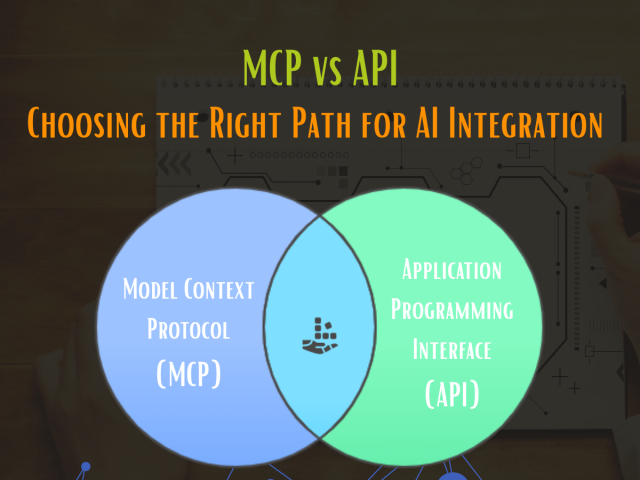Discover the Latest Digital Transformation Trends in Financial Services
The financial services sector is amidst a significant digital transformation wave, with companies swiftly embarking on their digital journeys to capitalize on the first-mover advantage and reap the rewards.
For instance, mobile banking has made it convenient for customers to send and receive payments at the click of a button. You need not commute to the bank to open an account. You can do this by sitting in the comfort of your home. Similarly, the advent of ATMs has made it easy to retrieve money even in the middle of the night.
However, the financial services sector faces many challenges concerning governance, enhanced competition, changing customer expectations, and more. Stay ahead of the curve as we explore the most impactful digital transformation trends reshaping the financial services industry. From cutting-edge technologies to novel customer-centric strategies, we will delve into how financial companies are navigating this ever-changing landscape. So, buckle up as we journey through the fascinating world of digital transformation trends in financial services.
Top 7 Digital Transformation Trends in Financial Services
The major trends concerning digital transformation in financial services are using advanced technologies like artificial intelligence and machine learning, data privacy challenges, real-time analytics, and enhanced customer experience.
Let’s understand these trends in detail.
Use of AI and Machine Learning for Predictive Analysis
The financial services sector is witnessing a rapid transformation in predictive analysis, all thanks to the swift advancements in AI and machine learning. These technologies have revolutionized how businesses detect and combat transaction fraud, making it easier to mitigate potential risks. Additionally, AI-powered predictive analysis offers invaluable insights into customer sentiments, allowing companies to understand their clients on a deeper level. By closely monitoring individual customer needs, businesses can customize profiles to enhance performance, improve segmentation, and deliver personalized experiences.
Moreover, AI has significantly impacted capital market analysis, empowering firms to thoroughly analyze performance data and make well-informed trading decisions. This newfound ability enables financial services businesses to optimize their investments and achieve better returns on their ventures.
One of the exciting developments in the field is the advent of AI-powered chatbots, which offer personalized financial advice to customers. By analyzing customers’ past spending behaviors, these chatbots can intelligently recommend savings plans across various financial instruments, aiding individuals in making smarter financial choices. The potential for personalized and tailored guidance ensures customers receive relevant and actionable advice that aligns with their unique financial goals.
Blockchain and Security
In the dynamic realm of financial services, digital transformation is reshaping the landscape, and blockchain technology is at the forefront, revolutionizing the security of financial transactions through the implementation of smart contracts. By utilizing interconnected and distributed ledgers, blockchain presents a formidable challenge to potential hackers, making it difficult to compromise closely connected transactions. The presence of a credible timestamp for each transaction within the blockchain network allows all parties involved to transparently track the money transfer, ensuring a secure and tamper-proof process.
Moreover, the applications of blockchain technology extend beyond transaction security alone; it is increasingly finding its way into the execution of smart contracts, driving remarkable efficiency gains. A prime example of this can be witnessed in the insurance industry, where smart contracts are streamlining the claims process. Manual intervention is now a thing of the past, as blockchain software autonomously verifies the legitimacy of claims, expediting the entire claims settlement procedure significantly.
As the financial services industry embraces digital transformation, integrating blockchain technology into its operations proves to be a pivotal step towards achieving heightened security, transparency, and efficiency. By leveraging the power of blockchain and smart contracts, financial institutions are paving the way for a seamless and trustworthy future, ensuring they remain at the forefront of innovation in the rapidly evolving digital landscape.
Enhanced Customer Experience
Digital transformation in financial services helps you enhance the customer experience from the beginning of their customer journey to the end. It does not just involve solving their customer queries. Instead, it is a combination of multiple factors like guiding your customers to access their accounts via numerous channels, giving them real-time updates about customer offerings, helping them to create an optimized online profile, and more.
Digital transformation can simplify the day-to-day needs of your customers. It ensures higher transparency, accountability, and credibility in the operations. In this way, you can enhance your customer satisfaction levels with faster digital performance.
Delivering habit forming experiences to customers will enhance Customer lifetime value for a financial services company in today’s competitive landscape.



Governance Challenges in Financial Services
In the financial services sector, governance challenges, including compliance with numerous regulations and managing multiple digital technologies, abound. To address these complexities head-on, a novel regulatory vertical known as RegTech has emerged, ushering in a new era of technological advancements. RegTech harnesses cutting-edge technologies like AI, cloud computing, and predictive analysis to identify and address governance shortfalls swiftly. By proactively correcting these issues, financial institutions can maintain their credibility and stay ahead of potential inquiries from regulatory bodies.
With the power of technology at its core, RegTech brings forth a myriad of advantages. Decision-making processes become faster, transparent, and accurate, while the credibility of the outcomes is heightened. Not only does RegTech save time and costs, but it also equips the financial services sector with the ability to predict and confidently tackle any challenges that may arise.
By embracing RegTech as part of their digital transformation journey, financial services firms can navigate the complex regulatory landscape with ease and efficiency. The integration of these advanced technologies empowers the industry to stay proactive, compliant, and forward-thinking, ensuring a resilient and successful future amidst the rapidly evolving digital landscape.
Data Privacy Concerns
Due to the proliferation of advanced technologies like AI, blockchain, and IoT, there is always a risk of data privacy breaches for the financial services sector. This sector houses customers’ sensitive data like bank account numbers, security passwords, phone numbers, etc. Hackers can break into the system via multiple entry points and steal crucial business data. Hence, digital transformation must employ checks and balances to tackle data privacy threats.
Increased Return on Investments with Digital Transformation
The financial services sector can expect a higher investment return with digital transformation. Automation technologies simplify the workplace processes, thereby improving the user experience and efficiencies.
For instance, users need not go physically to a bank location to open their accounts. They can easily create an account online using the bank’s mobile app or a website browser. In doing so, they save commuting time and speed up the transactions. Further, financial institutions can regularly notify users about new products and services. Customers can easily subscribe to these services online without taking much effort.
Real Time Monitoring & Analytics
Real time monitoring and analytics are crucial to spot operational and performance issues in the financial services sector. The faster you spot customer problems, the easier it is to resolve the same. Nowadays, there are various automation tools and software for real-time monitoring.
You can easily track the live financial transactions of your customers on a single dashboard and see the RoI on a weekly, monthly, or quarterly basis. This analysis is essential to chalk out and plan your future business strategies. Further, automation software also tracks the performance of your employees. Based on this data, you can understand their motivation levels and take effective steps for their grievance redressal.
Final Thoughts
Overall, digital transformation in financial services is crucial for speeding up transactions, saving time, ensuring the convenience of customers, maintaining higher levels of financial security, and more. Technologies like artificial intelligence, machine learning, cloud computing, and IoT aids well in the digital transformation of the financial services sector. These technologies help with the real-time tracking of transactions and your employee performance. With proactive monitoring, you can expect to solve the issues quickly and faster. Overall, digital transformation ensures the security of customer data and makes it hackproof.





